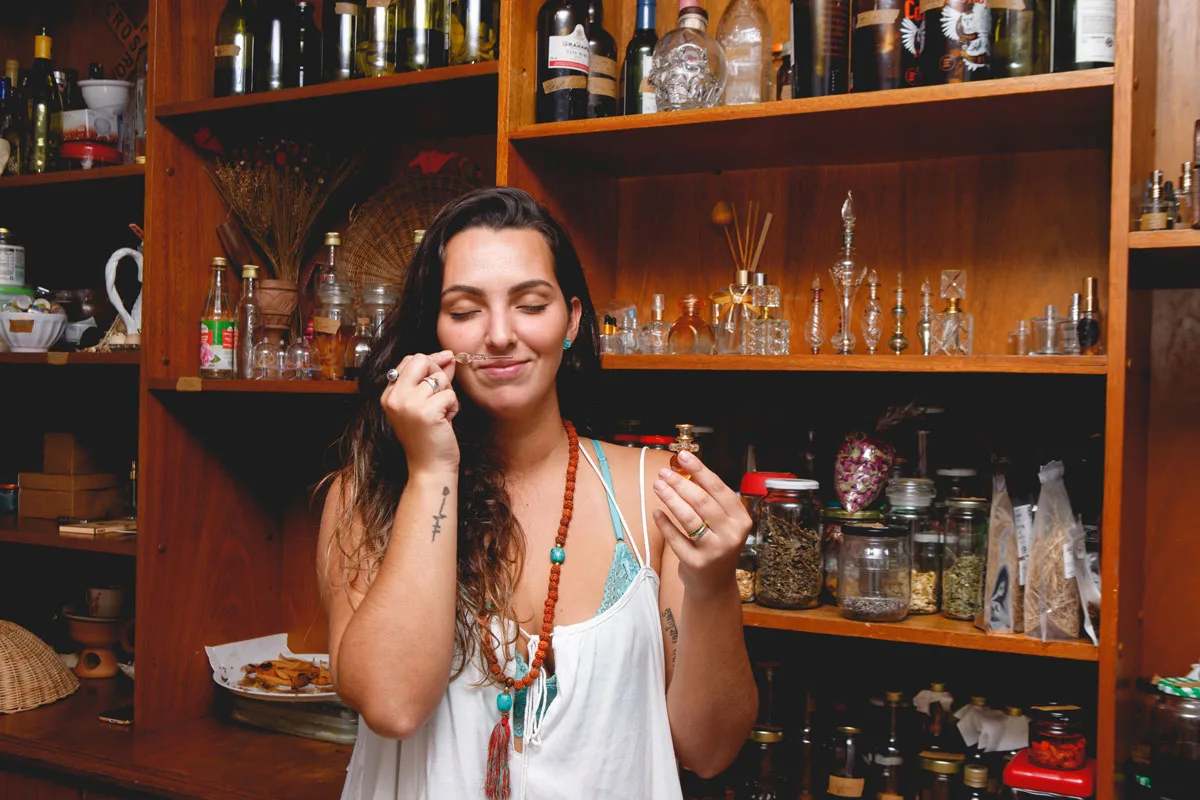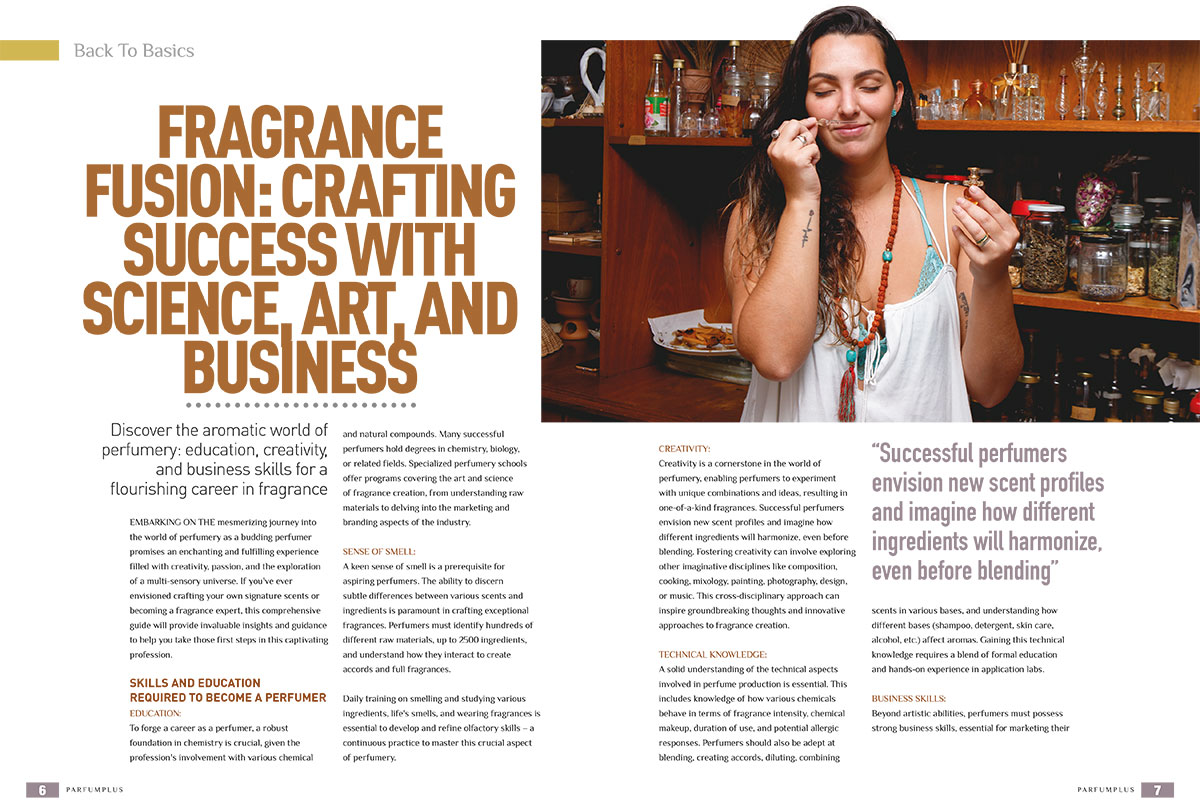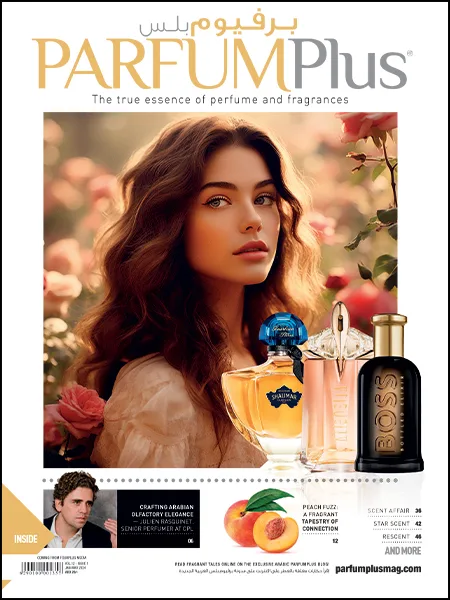Read this post in
 Arabic
Arabic
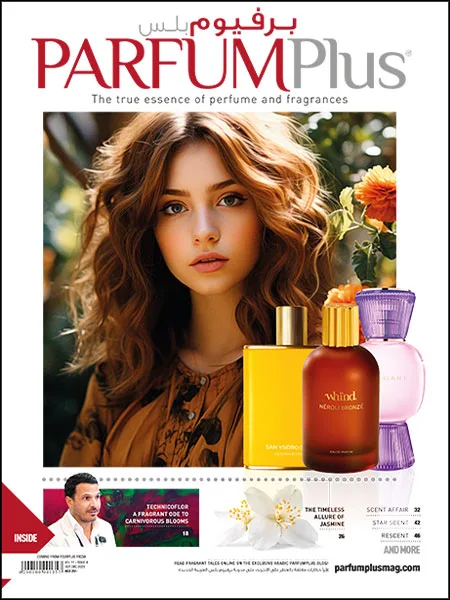
Fragrance Fusion: Crafting Success with Science, Art, And Business
Discover the aromatic world of perfumery: education, creativity, and business skills for a flourishing career in fragrance
Embarking on the mesmerizing journey into the world of perfumery as a budding perfumer promises an enchanting and fulfilling experience filled with creativity, passion, and the exploration of a multi-sensory universe. If you've ever envisioned crafting your own signature scents or becoming a fragrance expert, this comprehensive guide will provide invaluable insights and guidance to help you take those first steps in this captivating profession.
Skills and Education Required to Become a Perfumer
Education:
To forge a career as a perfumer, a robust foundation in chemistry is crucial, given the profession's involvement with various chemical and natural compounds. Many successful perfumers hold degrees in chemistry, biology, or related fields. Specialized perfumery schools offer programs covering the art and science of fragrance creation, from understanding raw materials to delving into the marketing and branding aspects of the industry.
Sense of Smell:
A keen sense of smell is a prerequisite for aspiring perfumers. The ability to discern subtle differences between various scents and ingredients is paramount in crafting exceptional fragrances. Perfumers must identify hundreds of different raw materials, up to 2500 ingredients, and understand how they interact to create accords and full fragrances.
Daily training on smelling and studying various ingredients, life's smells, and wearing fragrances is essential to develop and refine olfactory skills – a continuous practice to master this crucial aspect of perfumery.
Creativity:
Creativity is a cornerstone in the world of perfumery, enabling perfumers to experiment with unique combinations and ideas, resulting in one-of-a-kind fragrances. Successful perfumers envision new scent profiles and imagine how different ingredients will harmonize, even before blending. Fostering creativity can involve exploring other imaginative disciplines like composition, cooking, mixology, painting, photography, design, or music. This cross-disciplinary approach can inspire groundbreaking thoughts and innovative approaches to fragrance creation.
Technical Knowledge:
A solid understanding of the technical aspects involved in perfume production is essential. This includes knowledge of how various chemicals behave in terms of fragrance intensity, chemical makeup, duration of use, and potential allergic responses. Perfumers should also be adept at blending, creating accords, diluting, combining scents in various bases, and understanding how different bases (shampoo, detergent, skin care, alcohol, etc.) affect aromas. Gaining this technical knowledge requires a blend of formal education and hands-on experience in application labs.
Business Skills:
Beyond artistic abilities, perfumers must possess strong business skills, essential for marketing their creations, working with clients, and navigating the highly competitive fragrance industry. These skills encompass project management, communication, listening, sensibility, attention to detail, and an understanding of current market trends. Most renowned perfumers initially work with large fragrance houses like IFF, Firmenich, or Givaudan, as gaining experience in such environments is invaluable before venturing into independent entrepreneurship.
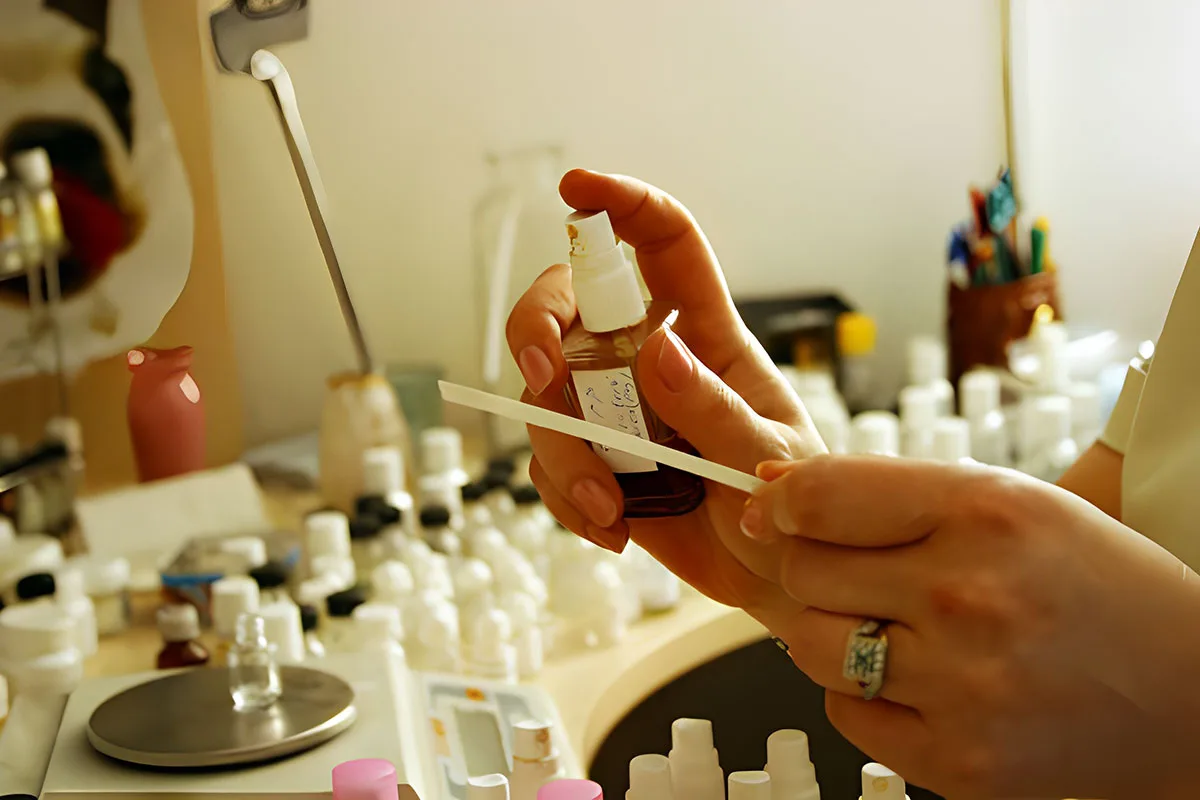
A Short Guide on Becoming a Fragrance Expert
Learn About Fragrance Families:
Understanding different fragrance families and their interactions is fundamental for aspiring fragrance experts. Fragrance families, such as Floral, Oriental, Woody, Chypre, Fougere, Leather, and Citrus Fresh, group scents with similar characteristics. Studying each family and its iconic ingredients provides a deeper understanding of fragrance classification and how different profiles complement or contrast with each other.
Understand the History of Perfumery:
A comprehensive knowledge of perfumery history offers a deeper appreciation for the art. Delve into the origins in ancient civilizations, the influence of different cultures on scent preferences, the regions where raw materials come from, and the perfumers who have shaped the industry. Understanding the historical context helps in developing a well-rounded perspective on the world of scent.
Study Ingredients:
Familiarizing yourself with the various ingredients used in perfumery is essential. This includes natural ingredients like essential oils, absolutes, and resins, as well as synthetic aroma compounds. Understanding their chemical and olfactive properties and the extraction methods, such as steam distillation or solvent extraction, provides insight into the nuances of each ingredient.
Experiment with Blending:
Blending is the art of combining different ingredients, both natural and synthetic, to create a harmonious fragrance. Developing blending skills involves experimenting with various ingredients and proportions.
Start with simple blends or accords and gradually progress to more complex compositions. Keeping detailed notes of experiments helps track progress and refine techniques.
Stay Current with Industry Trends:
Remaining informed about industry trends is vital for fragrance experts to stay competitive in the ever-evolving world of perfumery. Ways to stay updated include:
Follow industry news: Regularly check websites, blogs, and social media pages devoted to the fragrance business to stay updated on events, new releases, and fashion trends.
Read relevant publications: Subscribe to publications and newsletters for insights into studies, innovations, and trends.
Attend industry events: Participation in workshops, trade exhibitions, and conferences provides knowledge about recent advancements, networking opportunities, and exposure to cutting-edge ingredients and processes.
Participate in online forums: Joining forums and groups focused on fragrances allows connecting with other experts and hobbyists, facilitating the exchange of ideas, expertise, and experiences.
Continuously educate yourself: Participate in workshops, courses, and seminars focusing on the latest advancements in perfume-making to ensure skills remain up-to-date in the dynamic fragrance industry.
As you continually learn and refine your skills, you'll stay at the forefront of the fragrance industry, ready to adapt to its ever-evolving landscape. Discover the alchemy of science, art, and business in the enchanting world of perfumery, where creativity knows no bounds, and success is crafted with every exquisite note.
Read this post in
 Arabic
Arabic


